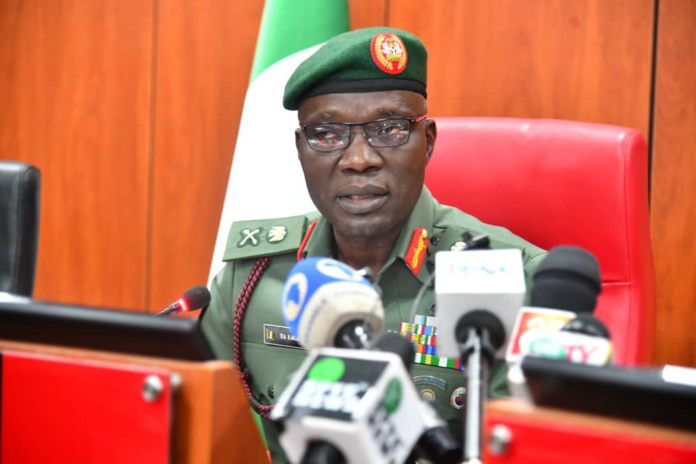By Aaior K. Comfort
Ilorin, Nigeria — Chief of Army Staff (COAS) Gen. Taoreed Lagbaja addressed the challenges of national security during the 2024 Distinguished Personality Lecture in Ilorin, Kwara State, asserting that it is unrealistic for two million security personnel to adequately protect over 200 million Nigerians.
Gen. Lagbaja, represented by the Chief of Army Training, Sanni Mohammed, emphasized the military’s heavy reliance on imported defense equipment due to Nigeria’s weak industrial base. He pointed out that while there have been some local production efforts, the country still imports over 90% of its military needs.
Funding Challenges
The army chief raised concerns about the inadequate funding of the Armed Forces of Nigeria (AFN), stating that budget constraints significantly affect military operational performance. “In 2023, the entire AFN had a budget of about $2.8 billion, with an additional supplementary budget of around $1 billion. However, not all budgetary allocations were fully released,” he noted. Despite improvements in funding since 2017, the country’s economic downturn has eroded the actual value of released funds.
Gen. Lagbaja remarked, “The lack of funding affects the AFN’s equipment holdings, which directly impacts performance.” He highlighted that the considerable resource gap is being exploited by criminal elements, necessitating investment in expanding and strengthening security forces.
Community Engagement for National Security
Addressing the security personnel gap, he stressed the need for national security to involve all citizens, fostering vigilance, trust, and community engagement. “This will create a more resilient citizenry, better equipped to respond to national emergencies,” he stated.
The Vice Chancellor of the University of Ilorin, Professor Wahab Egbewole, echoed the importance of peace and security for sustainable development. The event, organized by the Centre for Peace and Strategic Studies at the University of Ilorin, in collaboration with the Martin Luther Agwai International Leadership and Peacekeeping Centre, Jaji, was part of the activities marking the United Nations International Day of Peace.

